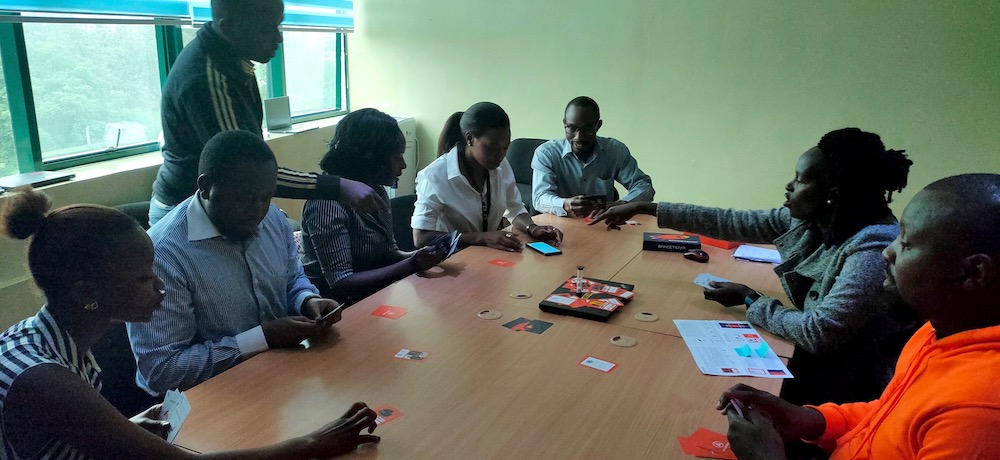
Games for Diversity and Inclusion
Promoting workplace diversity and inclusiveness through games
Airbel worked closely with colleagues in the Asia Region to prototype approaches to increasing diversity and inclusivity in our workplaces through mechanisms with wide appeal, that can be easily integrated into workplace routines.
Gender, power, and culture are familiar lenses used in the aid sector when thinking about programming. However, we don’t consistently turn those lenses on ourselves. The literature is rife with examples of gender bias in recruitment, workplace sexual harassment, and challenges women face in advancement. What is less obvious is how to counteract these issues, particularly in Asian workplaces, where the literature is silent. In recognition of these challenges, the IRC is conducting workshops, and undertaking efforts to roll out new guidance on areas such as hiring, protection, and HR policies.
The idea
IRC-Asia partnered with Airbel to develop this concept. The Asia Regional Director and Gender Advisor hypothesized that a game or an app could appeal to a broad audience, even to colleagues for whom gender is not a priority. We believed that to be effective, colleagues must be engaged for prolonged periods, without a need for training or facilitation. Game play is a growing area of exploration by social research institutions for shifting attitudes and behaviors, making it an interesting starting place for our work.
The development
The Asia team and Airbel collaborated to prototype different types of group, individual, digital, and analogue activities to better understand their appeal to colleagues in a work setting, as well as how they may be integrated into the workday. As a starting point, the team began looking at games which colleagues were already playing and how sensitive conversations happen in the workplace.
Prototyping results
Five different game prototypes were tested in Afghanistan, Malaysia, Pakistan, and IRC IHUB in Nairobi. The prototypes included a mix of analog and digital games as well as individual and team play games. Tests confirmed that a game-based approach has a strong potential for positively impacting on gender equality and inclusion in a workplace by:
- Creating opportunities for male and female colleagues to interact informally within the egalitarian and participatory framework of the game;
- Building women’s confidence to participate in a team and speak out in a group;
- Encouraging reflection and discussion on and challenging gender-related attitudes, behaviors and social and cultural norms and pushing boundaries;
- Broadening people’s minds by exposing them to different interpretations, positions and opinions;
- Strengthening relationships among staff, enabling them to get to know each other better as a human to a human (not only in a dry professional manner), enhancing a team spirit, thereby contributing to a more congenial work environment that would benefit all staff;
- Fostering inter-cultural understanding and promoting celebration of diversity; and
- Creating opportunities to exercise a range of skills and qualities, e.g. listening, expressing oneself, decision-making, empathy, reflection, sense of humor, etc.
Based on the overwhelmingly positive feedback and learning from these tests, the concept was further articulated to develop an interactive package that includes two card games accompanied by a manual and on-line and digital activities.
Project Timeline
Package of games identified
The Asia team concludes early prototyping and identifies a draft concept, comprised of an app, 2 card games, and a manual. They will use the micro-grant from Airbel to build these out and further test them.
Graduation to in-country prototyping
The Airbel team hands off prototypes, a recruitment plan, and data collection tools to the Asia Region for use in Kenya,, Afghanistan, and Pakistan. Prototyping moves forward under the direction of the Asia Region’s new Gender Regional Advisor, who expands prototyping into Malaysia.